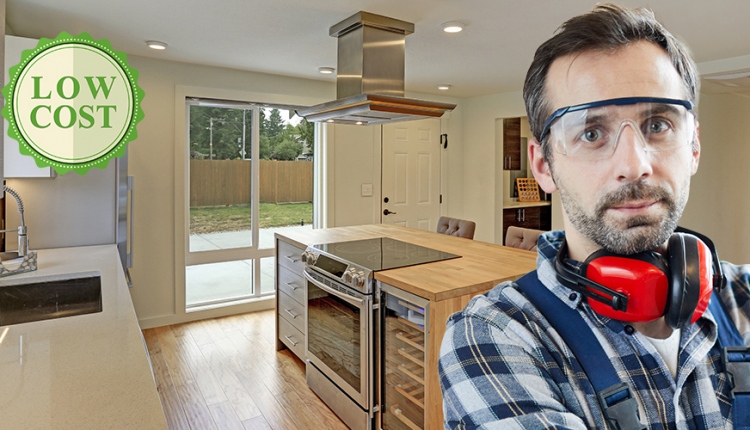Kitchen Renovations Tips To Avoid Kitchen Hazards and Accidents
Awareness when it comes to kitchen safety is very important. Most homeowners are focused on the changes that they are going to make during their kitchen renovations. There are times when safety is neglected in the excitement. Knowing the proper kitchen safety precautions is vital for food preparation and cooking processes. Even during the clean-up and simple daily living, kitchen safety is highly important to fully understand by each family member living in a home.
Understanding the risks and hazards that are present within your kitchen can assist you in avoiding an accident that can subject your family to any problems. Moreover, ill-preparations of food could lead to food poisoning which is hazardous to your business. Cooking with sharp knives and intense heat means that accidents are sure to take place within the kitchen.
To remain safe within the kitchen, it is vital to know the risks present in this kitchen area of your home. From using hot stoves and sharp knives, getting to know some of the most common kitchen hazards can assist you in changing your habits while protecting your family from accidents.
Safety Precautions With Knives
A dull knife is as dangerous as a sharp knife as it can likely slide and cut your hand. Sharp knives offer better grips than a dull knife. Sharpen your knives regularly to have a better grip and without applying too much force when cutting any food item. Sharpening your knives is among the simplest ways to make your cooking process safer. There is an easy fix by using a knife sharpener to take care of a keen-edged blade. Also, you ought to choose the right knife needed for the task at hand. In other words, utilizing a cleaver to slice grapes or strawberries is not a good idea. You must use the right type of knife depending on the task and use it appropriately to help prevent serious injuries. Make sure that you know the right safety precautions when it comes to knives to protect yourself from getting a knife-related wound or laceration:
Here are a few tips when handling a knife:
- Always ensure that you handle knives with caution.
- Always ensure that your knives are sharpened so you don’t have to strain or put too much force while chopping, slicing, or dicing.
- When you are holding a knife, always make sure that you are not distracted or holding other things.
- Firmly grasp the knife handle firmly while laying your hand on the top of the knife to avoid any blade contact.
- When you are chopping round objects, cut one side to form it flat then lay the flat side down on your block. This way, you’ll stabilize whatever you’re chopping.
Use the right cooking tools:
- To avoid hot items or liquids from slipping or spilling, use the proper cooking utensils needed.
- Use tongs when handling large and firm products. When working with hot items, firmly grasp them and stay mindful of any water or oil splashing.
- Use cooking tools with hand grips if you’ve got difficulty in firmly grasping your tools.
- When using tools with sharp edges, go slowly in the beginning until you get them used to it. Graters, zesters, and mandolins have the potential to cut or slice your fingers or hands if you start too fast in the beginning.
- Always clean your utensils to stop food contamination from happening.
As a homeowner, kitchen renovations might be your main focus and goal. However, you have to ensure that your kitchen renovations will make your kitchen safer than before. There are over 160,000 residential fires that happen every year caused by cooking fires. In fact, cooking is one of the main reasons that lead to injuries and fires occurring in the homes. Always make certain that you must have a fireplace extinguisher prepared in your kitchen and have the proper skills to use it. It only takes a few seconds for a huge fire or any accident to take place.
If you are planning your kitchen renovations, look into the possible causes of fires such as grease and electric causes. Avoid putting electric appliances and heat-emanating tools near water. If any fire starts breaking out, extinguish it with a pan cover or a bicarbonate soda. Suffocate the fire by removing the air that supplies the fire to get stronger. Always check your appliances are off at night and when you leave your home.

